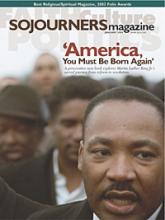When states sued tobacco companies, they said, "Its not the money, its about our children." Now, its the money.
The main character in J. D. Salingers novel The Catcher in the Rye pictured thousands of kids playing in a field atop "some crazy cliff," liable to tumble off unless he caught them. Today, folks make money from kids going over the edge. For instance, if 3,000 American children per day dont start smoking, tobacco companies domestic market will suffer. Since, according to numerous studies, nicotine is as addictive as heroin or cocaine, this "crazy cliff" event is rigged: One in three teens who buy that ticket ultimately die from it, paying for it the whole way down.
In the 1990s, states sued Big Tobacco and settled for a tidy $254 billion. Youd think the catcher in the rye could relax; instead hes being hung out to dry. The portion of total state tobacco revenues (including settlements and taxes) used toward smoking prevention is a shameful 3 percent, according to the National Conference of State Legislaturesnowhere near federal guidelinesand continuing to nosedive.
Prevention programs are a proven vaccination against generations of disease and death. The evidence is in, but the vaccination is being withheldbillions of dollars diverted. Call it missed historic opportunity or sin of omission. Dr. Karen Lebacqz, an ethicist at the Pacific School of Religion, calls the siphoning off "a breach of the public trust."
Read the Full Article
